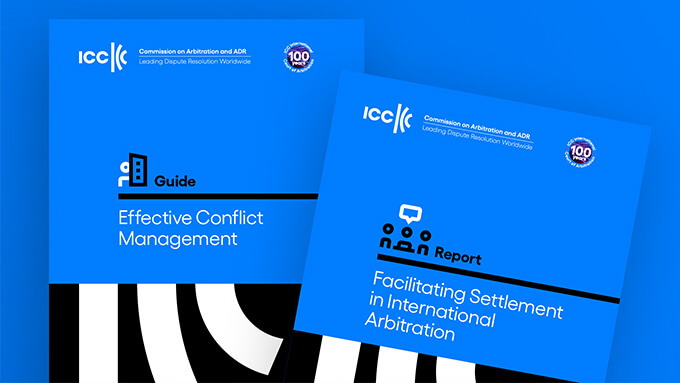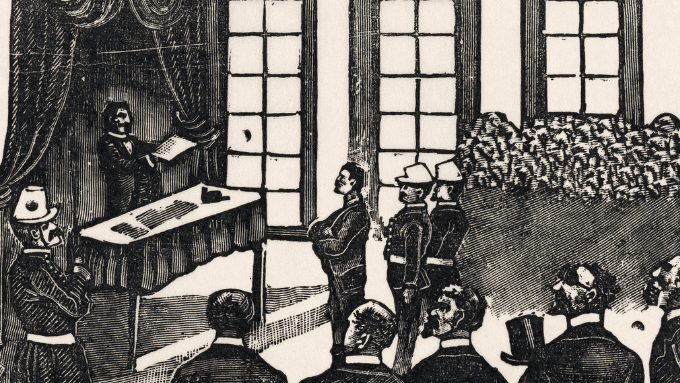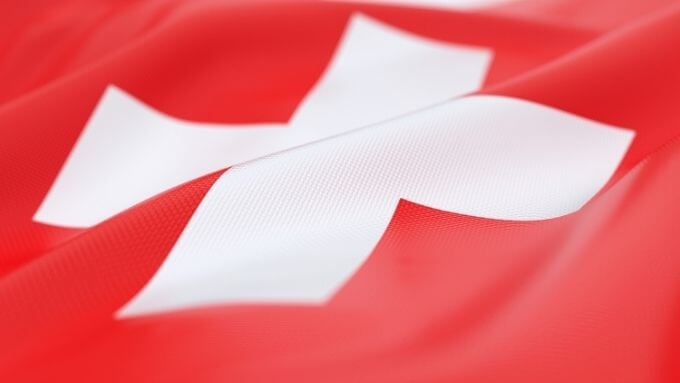Regulation Models for Third Party Funding in Investment Arbitration - Part I
Introduction
The United Nations Commission on International Trade Law (“UNCITRAL”) Secretariat published the Draft Provisions on Third-Party Funding (“TPF”) in Investor State Dispute Settlement (“ISDS”).[1]
The Draft Provisions give an insight of host states’ long-lasting concerns on the influence of the TPF[2] in treaty-based arbitrations.[3] It is argued by some states that TPF is used as an abusive tool for easier access to arbitration, especially for frivolous claims filed with political purposes. By the Draft Provisions, it is aimed to fill the regulation gap, and raise transparency in practice as a part of the UNCITRAL Working Group III’s ISDS Reform proposals dating back to August 2019.[4]
Once finalized, these provisions may be implemented through inclusion into investment treaties at bilateral or multilateral levels.[5] Their modified versions may be incorporated into arbitration rules and domestic legislation.
Definitions
Draft Provision 1 provides definitions of key terminology, such as TPF, funder and funded party.[6] The definitions are drafted in a broad manner. TPF includes indirect funding, where a funding agreement is concluded by an affiliate or a representative of a disputing party. It also covers both financial and non-financial support, commercial financing and, as well, forms of non-profit funding.
Scope
The UNCITRAL aims to block potential claims to be raised by funders due to loss or damage they suffer while funding an investment dispute against a host state. In this manner, Draft Provision 8 draws the scope of covered “investor” and “investment,” and clearly excludes TPF from this scope. Accordingly, neither shall TPF be construed as an “investment,” nor may the funder be an “investor” as per the applicable treaty.
Regulation Models
Draft Provisions 2 to 5 set forth regulation models aiming to raise integrity and avoid abuse in the ISDS proceedings.
- Prohibition Models: Draft Provision 2 offers four options to implement a prohibition against TPF. Options vary from a general prohibition to a denial of benefits clause. Should any of these options be included into investment treaties, claims filed through a funder may be rejected, and tribunals may declare jurisdiction to hear the claim.
The prohibition models fail to respect claimants’ right to access justice, and disregard the financial burden many claimants face in treaty-based arbitrations. Instead, the prohibition models appear to excessively back host states’ concerns over frivolous claims filed in bad faith and/or for political purposes.
- Restriction Models: Draft Provisions 3 to 5 allow only certain types of TPF. According to the “Access to Justice Model,” TPF is permitted where the claimant is not in a financial position to file a claim without a funder. This prevents funding obtained only for business purposes, where claimants can actually manage risks, and afford the costs of the proceedings without financial support from a funder.
“Sustainable Development Model” permits TPF only if claimants’ investments comply with sustainable development provisions of the host state. The UNCITRAL argues that this model could motivate states to prioritize investments contributing to fight against climate change and protection of environment.
“Restriction List Model” illustrates prohibited funding types that are speculative, requiring excessive return, and which exceed a reasonable number of cases funded against the same respondent state regarding the same measure.
Given their subjective nature, these models are likely to cause further complications in treaty arbitrations should they be incorporated into treaties. The “Access to Justice Model” is not, especially, convincing since it fails to explain why claimants should be under the burden of using solely their own sources while filing a claim.
Sanctions
Draft Provision 6 sets forth legal consequences, should there be a TPF falling within the Prohibited or Restricted Models, which nevertheless finances an investment claim. Possible sanctions vary, such as, lack of jurisdiction for the tribunal, inadmissibility of claim, termination of the TPF agreement, return of the funding received, suspension of proceedings, and consequential costs awards. The UNCITRAL takes one step further by underlining the likelihood of annulment of an award in such cases.
Disclosure Regime
A major part of the UNCITRAL’s work covers a detailed disclosure regime in the TPF. As per Draft Provision 7, the claimants are expected to disclose the identity of the funder with its beneficial owner and decision-maker in addition to the funding agreement. The tribunal has the discretion to determine the extent of disclosure. Accordingly, further details might also be required to be disclosed such as, the funders’ expected return, level of influence on the claim, and other cases they fund against the same state.
The disclosure regime serves the purpose of bringing more transparency to the ISDS proceedings, which has been a common concern for arbitration institutions such as the ICSID and ICC. This provision may be developed further to combine with disclosure requirements of the tribunal members in line with draft Code of Conduct for Adjudicators in International Investment Disputes.[7]
Costs

The UNCITRAL provides alternative provisions for cost-related matters, as well. Draft Provision 9 offers two options for ordering security for costs. Option A regulating a mandatory regime requires ordering security for costs should there be a claim funded by TPF. This option appears to be designed to reassure recovery of respondent states’ costs in an investment dispute brought by a claimant in financial difficulties.
As per Option B, the tribunal has the discretion to order security for costs from the funded party. This option seems to be more adequate, since the mere existence of TPF would not necessarily justify an order for security of costs.[8] It also better aligns with the fact that each dispute has its own financial realities, subjects and grounds that require a case by case analysis.
Draft Provision 10 provides two alternatives on allocation of costs related to TPF (including a return to be paid to the funder) in an investment dispute. Option A excludes TPF costs from the costs of the proceedings. As per Option B, TPF costs shall be borne by the funded party. Both provisions underline the tribunal’s discretion to determine differently on cost allocation.
Considerations on Code of Conduct for TPF
Lastly, the UNCITRAL considers various initiatives to develop a Code of Conduct for TPF. These initiatives are likely to focus on disclosure; transparency in business conduct; limitation on return to be paid to the funder; control of the funder in the proceedings; number of claims to be funded against the same state; and due diligence against frivolous claims.
Conclusion
The Draft Provisions on TPF in the ISDS reflect concerns on the funding industry’s impact in the ISDS practice.
The Prohibition and Restriction Models in addition to Sanctions provide a strict framework limiting funding options, which fail to answer the needs of arbitration practice, typically requiring a high amount of financial source while filing a claim. The Draft Provisions on Disclosure and Cost Allocation are important steps on the way to transparency and efficiency.
TPF is argued by some to be used as an abusive tool for easier access to investment arbitration, especially for frivolous claims filed with political purposes. However, this negative bias is not necessarily true. Funders’ prior due diligence on the merits and success chance of the claim prove the other way around, since financing claims having no legal basis and borne to be dismissed before an arbitral tribunal would not be sound and sustainable for the funding business.
Regulatory work on TPF is likely to continue further, in line with the ISDS reform. Arbitration institutions have followed the same path since the ICC 2021 Arbitration Rules[9], and the ICSID’s fifth working paper on its Draft Rules[10] were also drafted in a way to answer long-lasting calls of states for further transparency and regulation in the funding industry, which will be covered in depth in Part II of this article.
[1] For access to the Draft Provisions: Third-party funding | United Nations Commission on International Trade Law.
[2] For further details on TPF see Leyla Orak Çelikboya, Third Party Funders in Arbitration, September 2015, for access: Third Party Funders in Arbitration - Erdem & Erdem (erdem-erdem.av.tr).
[3] Jack Ballantyne, UNCITRAL publishes proposals to reform funding of ISDS, GAR, for access: Global Arbitration Review - UNCITRAL publishes proposals to reform funding of ISDS.
[4] UNCITRAL Report of Working Group III (ISDS Reform), 38th Session, Vienna, 14–18 October 2019, para. 94, for access: A/CN.9/1004 - E - A/CN.9/1004 -Desktop (undocs.org).
[5] The Draft Provisions will be open for comments until 30 July 2021.
[6] TPF is defined as “‘Third-party funder’ is any natural or legal person who is not a party to the proceeding but enters into an agreement to provide, or otherwise provides funding for the proceeding.”
[7] For access: Code of Conduct for Adjudicators in International Investment Disputes | ICSID (worldbank.org).
[8] UNCITRAL Report of Working Group III (ISDS Reform), 38th Session, Vienna, 14–18 October 2019, para. 94, for access: A/CN.9/1004 - E - A/CN.9/1004 -Desktop (undocs.org).
[9] The ICC 2021 Arbitration Rules Art. 11/7 is as follows:
In order to assist prospective arbitrators and arbitrators in complying with their duties under Articles 11(2) and 11(3), each party must promptly inform the Secretariat, the arbitral tribunal and the other parties, of the existence and identity of any non-party which has entered into an arrangement for the funding of claims or defences and under which it has an economic interest in the outcome of the arbitration.
For access: 2021 Arbitration Rules - ICC - International Chamber of Commerce (iccwbo.org).
[10] ICSID’s fifth working paper on its Draft Rules, for access: ICSID Releases Fifth Working Paper on Rule Amendments | ICSID (worldbank.org).
All rights of this article are reserved. This article may not be used, reproduced, copied, published, distributed, or otherwise disseminated without quotation or Erdem & Erdem Law Firm's written consent. Any content created without citing the resource or Erdem & Erdem Law Firm’s written consent is regularly tracked, and legal action will be taken in case of violation.
Other Contents

Emergency arbitration addresses the need for interim protection before the arbitral tribunal is constituted in institutional arbitrations. Arbitral institutions establish short timeframes to ensure parties can obtain interim relief quickly. For example, the International Chamber of Commerce (“ICC”) requires that the emergency...

International arbitration remains the preferred mechanism for resolving complex cross-border disputes. Yet despite its advantages—neutrality, enforceability, flexibility—arbitration is frequently criticized for being too slow, too expensive, and too procedurally heavy. Often, parties proceed through hearings and...

For arbitral awards rendered in international commercial arbitration to produce legal effects in foreign jurisdictions, they must be subjected to proceedings for “recognition” and “enforcement.” This process is governed by the New York Convention as well as by the provisions of the Law on Private International Law...

Arbitrability, the determination of whether a specific subject matter can be resolved through arbitration, constitutes a fundamental aspect of arbitration within the scope of international commercial dispute resolution. This concept draws a delicate balance between party autonomy—a fundamental principle of arbitration...

The recognition, enforcement, and annulment of foreign court and arbitral awards in Türkiye are processes in which public policy emerges as one of the most critical criteria for review, both in theory and in practice. The Court of Cassation decisions determine the direction of case law regarding the scope and...

As is well known, the action for annulment of objection is a special type of lawsuit regulated under Article 67 of the Turkish Execution and Bankruptcy Law No. 2004 (“EBL”). The primary objective of this action is to nullify a debtor’s objection to execution proceedings. Despite its procedural function of facilitating...

On 16 December 2024, the London Court of International Arbitration (“LCIA”) released its third batch of challenge decisions covering the period from 22 July 2017 to 31 December 2022. The LCIA has also issued a detailed commentary that identifies key legal themes and analytical trends, offering practitioners...

The International Chamber of Commerce (“ICC”) has published its report on the dispute resolution statistics for 2023 (“Report”) , shedding light on the evolving landscape of international arbitration...

Syndicated loans undoubtedly hold a significant position among global financing models. In 2023 alone, 3,655 syndicated loans were provided to companies in the US, with their total value reaching USD 2.4 trillion...

Preliminary attachment refers to the temporary seizure of a debtor's assets to secure a creditor's claim. While it serves as a vital instrument for safeguarding the rights of creditors, it is subject to specific and stringent conditions under Turkish law to prevent any potential misuse...

One of the most important reasons for parties to choose arbitration is the opportunity to freely choose their arbitrators. This freedom granted to the parties also distinguishes arbitration from proceedings before state courts, where the parties are deprived of the power to determine the judges who will conduct the...

The 6th Civil Chamber of the Court of Cassation ruled on October 12, 2022, that national courts have jurisdiction over objections to provisional measures in international arbitration disputes...

The declaration of intent to resolve disputes through arbitration is the fundamental constituent element of an arbitration agreement. To speak of a valid arbitration agreement, the parties' intention to arbitrate must emerge in a way that leaves no room for dispute...

In the wake of the evolving dynamics of commercial transactions, the Netherlands Arbitration Institute Foundation (NAI) announced new arbitration rules . 2024 NAI Arbitration Rules are in force as of 1 March 2024 and will be applicable on proceedings filed on or after this date...

With the global shift to online activities, domain names play a crucial role in identifying businesses. It is more common than ever for a domain name to be registered that is confusingly similar to a trademark or service mark...

The ICC Commission on Arbitration and ADR (“Commission”) published a new guide and report with the aim to increase awareness on alternative dispute resolution (“ADR”) mechanisms to prevent disputes and strengthen the relationship between all stakeholders.The Guide on Effective Conflict Management...

Mergers and Acquisitions (“M&A”) are restructuring of companies or assets through various types of financial transactions, such as mergers, acquisitions, purchase of assets, or management acquisitions. This Newsletter article covers M&A disputes being solved before arbitral tribunals.

In the context of arbitration practice, the principle of revision au fond means that the courts can not examine the merits of a dispute when reviewing an arbitral award. This principle is most commonly encountered in set aside and enforcement proceedings. An arbitral award is evidence of the parties’ willingness...

Under Turkish law, parties may agree on the settlement of disputes that have arisen or may arise, regarding the rights that they can freely dispose of, by arbitration. However, disputes which are not subject to the will of parties, such as the disputes relating to in rem rights of immovables, bankruptcy law...

On 4 September 2020, a research project “Does a Right to a Physical Hearing Exist in International Arbitration?” was launched by an International Council for Commercial Arbitration (“ICCA”) taskforce. Due to the Covid-19 pandemic, many arbitration hearings were held online. Many institutional rules...

Dubai International Arbitration Center amended its Arbitration Rules on 25 February 2022. The 2022 Arbitration Rules were published on 2 March 2022 and came into effect on 21 March 2022. The Rules will be applied to arbitrations that are filed after 21 March 2022; unless parties agree otherwise...

In the aftermath of the Achmea decision, controversies on intra-EU arbitrations continue. Most recently, the Paris Court of Appeal has annulled two arbitral awards rendered against Poland. Meanwhile, the Higher Regional Court of Berlin has refused to declare that an Irish investor’s ICSID claim...


Under Turkish law, the legal remedy that can be applied against arbitral awards is an annulment action. Law on International Arbitration No. 4686 (“IAL”) finds its application area in arbitration proceedings where Turkey is the place of arbitration...

It is well known that following a decision of the Court of Justice of the European Union, problems arose related to arbitration of intra-EU disputes, and particularly arbitration under the Energy Charter Treaty...

Arbitration in corporate law contains controversial elements in many respects, especially the issue of arbitrability. Even in legal systems where these disputes are considered to be arbitrable, uncertainties remain on whether an arbitration clause can be included in the articles of...





Arbitration has benifited from a great increase in the use of technology which has directly effected the conduct of proceedings. More particularly, with digitalization, the way that we conduct arbitration proceedings has been changed to reflect the current needs of parties, with an aim of increasing time...
































































